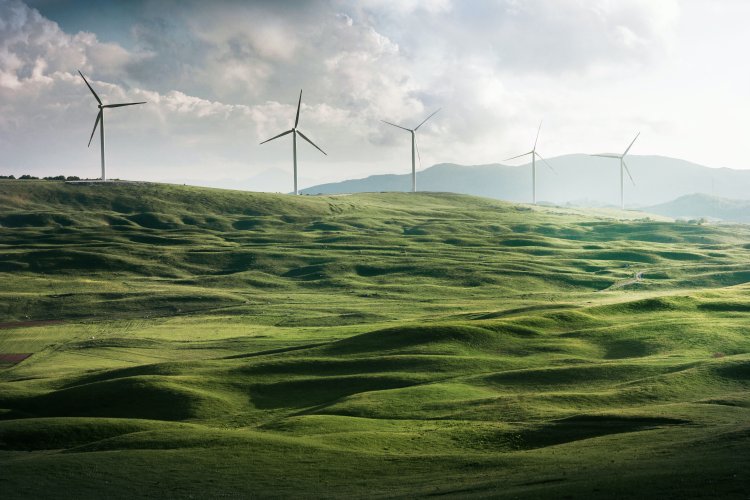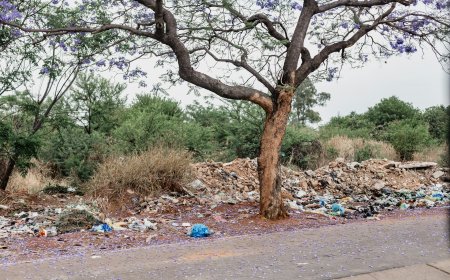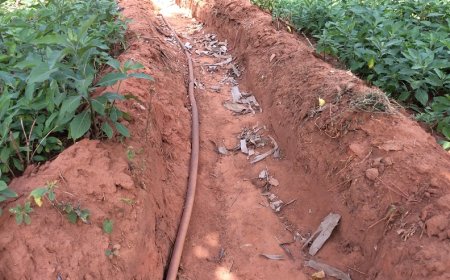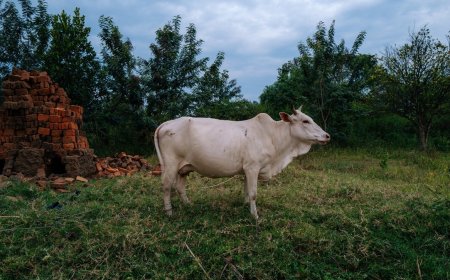This publication is one of two published in partnership with the Heinrich Böll Foundation, Washington, D.C. office. The other publication, a report, is titled Tackling Climate Change and Propelling a Green Transition under the African Continental Free Trade Area and is available here.
When the landmark African Continental Free Trade Area (AfCFTA) agreement came into force in January 2021, the stage was set for intra-African trade to grow by about 33 percent, thereby lifting an expected 30 million people out of extreme poverty by 2035. Manufacturing is projected to double from USD500 billion to USD1 trillion by 2025 while intra-African trade in agricultural products is forecast to increase by between 20 to 30 percent. Increased production in pursuit of trade opportunities under the AfCFTA is likely to contribute to greenhouse gas emissions, yet this can also form a key part of the solution in shaping the transition of African economies to green growth, climate change mitigation and adaptation.
A recent report published by APRI – Africa Policy Research Institute with the support of the Heinrich-Boell-Foundation entitled “Tackling Climate Change and Propelling a Green Transition under the AfCFTA”, examines the ongoing global and African discourse on climate change and the AfCFTA to explore the opportunities and challenges of addressing climate change under the agreement.
The major points derived from the analysis are:
- While the AfCFTA makes minimal references to the environment, it can be adjusted to support environmental and climate change actions by building on the approach taken in the now stalled World Trade Organisation (WTO) Environmental Goods Agreement (EGA) negotiations. This would involve ensuring that tariffs, non-tariff barriers and other restrictions to trade in environmental goods and services are eliminated. Benefits from such actions would include the development of green value chains for environmental goods and services in Africa, even as trade liberalization ensures that there is little or no need to develop green industries that cover all the many product lines–up to 304–that exist across the 10 sectors identified by the EGA.
- As the AfCFTA forms part of a broader green economic transition plan for Africa, pursuant to the objectives of the Paris Agreement and national and continental targets on climate change, decarbonization in the energy sector and in trade-related sectors like transportation are central to the green transition under the agreement. For countries like Algeria, Angola, Equatorial Guinea, Mozambique, Nigeria, South Africa and Zimbabwe, which rely on fossil fuels either as export receipts or for domestic power generation, the green transition to net zero emissions and de-carbonization would require policymakers to devise a phased approach over decades. A successful green transition would further hinge on development partners providing technical and financial support that is beyond what is currently available.
- While there might be utility in including some provisions in the AfCFTA framework that enhance the strategic link between trade and the environment, there are two reasons why doing this might not be optimal. First, past challenges in implementing trade agreements and the absence of a strong enforcement mechanism suggest that there may be limited value in incorporating an additional Environmental Protocol to the AfCFTA. Second, at the multilateral, continental and regional levels Africa has no shortage of agreements, commitments, and initiatives that deal extensively with environmental sustainability and climate. Introducing detailed provisions on climate into the AfCFTA would to some degree, amount to duplicating the Africa Climate Change Strategy, Africa’s Green Recovery Action Plan (2021–2027) and various regional strategies on climate change that African governments have committed to elsewhere. One solution would be to reinforce support for the implementation of these existing initiatives on climate change and environmental sustainability, while at the same time supporting measures to consolidate, incorporate and synchronize current efforts under the AfCFTA such as the preparation of a Strategic Environmental Assessment (SEA) of the AfCFTA to support how environmental considerations can nevertheless be effectively incorporated into the implementation of the Agreement.
Based on the analysis and findings, the paper suggests the following recommendations on how African governments, African stakeholders and development partners can ensure that AfCFTA supports a green transition for the continent.
Recommendations for the EU, US, and other development partners
- Greatly increase climate financing and the deployment of climate-related technology with African countries, so that they can utilize the AfCFTA to achieve climate objectives. Access to climate financing should be made easier than it currently is, with more in grants and concessional loans. For a just transition, and a successful decarbonization of the energy sector and in trade-related sectors like transportation, both technical and financial support that are beyond what is currently on offer are required. In addition to providing financing, development partners should work together with African countries to establish innovation centers and facilitate public and private partnerships with African businesses towards the development of green value chains, proper sourcing of critical raw materials for environmental goods and institution of co-development of technologies across green industries.
- Align initiatives like the European Green Deal with the AfCFTA and with African realities. The AfCFTA can serve as an entry point for working with African policymakers to devise targeted and enhanced support for the development of export-capable green value chains, climate adapted agriculture, green manufacturing and services in energy and transportation and other sectors that are pivotal to Africa’s green transition and decarbonization. Technology can be transferred, and partnerships can be formed with African businesses to help achieve these objectives. These, and technical support for the development of climate adapted national trade policies, would help mainstream climate adaptation, green growth, resilience, and the transition to green economic development. In addition, Africa’s development needs should be part of considerations when making decisions on the environmental standards that African goods must attain. The EU can apply special differential treatment for African export and industries during the green transition. African producers can be encouraged to adopt complementary tools of trade like the Voluntary Sustainability Standards while development partners provide adequate technical capacity and reduce the costs of criteria compliance.
- Support Africa’s circular economy initiatives – such as the African Circular Economy Alliance. This is a low-hanging fruit that will ensure that recycling of materials is normal practice and resource use is sustainable throughout the life cycle. There is a clear connection between the circular economy and climate mitigation as the former enables resource savings, lower material and resource consumption and reduced greenhouse gases emissions. Development partners should provide technical support for the incorporation of recovered inputs in African production processes, for waste and pollution minimization, for repair and refurbishment as well as for remanufacturing and recycling.
Recommendations for African policymakers
- Understand that there is a limited “horizon” for replicating industrialization based on fossil fuels. Therefore, even while seeking to improve energy access for industrializing using traditional energy sources, efforts should be made to push for the development and adoption of technologies needed for green industrialization – including in negotiations with rich countries.
- Clarify the policy space needed for a successful green transition under the AfCFTA – including a consideration of how to leverage existing continental and regional initiatives. These include the African Union’s Continental Green Recovery Action Plan, as well as initiatives undertaken with support from development partners such as Comprehensive Africa Climate Change Initiative (CACCI).
- Implement policies that will make trade-related sectors such as energy and transportation more green, as well as policies that ensure that sustainable agricultural practices are advantageous to farmers. Policymakers should also recognize the importance of the trade in service sector as an important driver of the green transition, and facilitate the growth of the environmental service sub-sector in a balanced manner that ensures local participation.
Conclusion
The AfCFTA is expected to invigorate intra-African trade, leading to economic gains across the continent. It can also be a double-edged sword that contributes to environmental degradation and climate change, if significant efforts are not made to have the economic boom powered by a growing share of renewable energies and gradually reduce reliance on fossil fuels. There are opportunities for ensuring that AfCFTA produces positive influences on climate action and Africa’s environmental sustainability. African policymakers and development partners should work collaboratively to realize these opportunities for the benefit of Africans and humankind at large.
About the Authors
Calvin Manduna is an international trade law consultant with the ACP International Trade Advisers based in Washington, DC, and former Principal Trade Expert with the African Development Bank.
Taku Fundira is a market intelligence consultant specializing in international trade, agriculture, energy, and development finance. He is a founding member of the South African Trade Reference Group and an Associate at the Trade Law Centre (tralac), based in South Africa.




